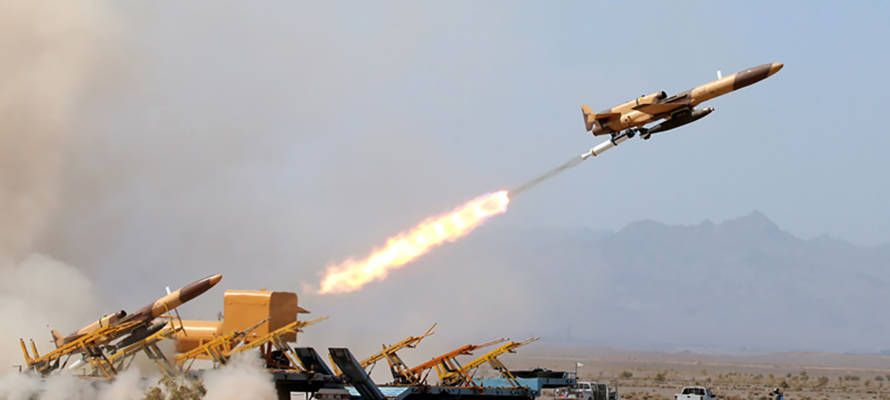“Iran continues to escalate its nuclear program way beyond any plausible civilian justification,” said France, the UK, and Germany.
By Aryeh Savir, TPS
Iran “continues to escalate its nuclear program way beyond any plausible civilian justification,” France, the UK, and Germany warned while acknowledging that the finalization of a renewed nuclear deal with Tehran was not in sight.
The three governments, known as the E3, said in a joint statement on Saturday that they have negotiated with Iran “in good faith” to restore and fully implement the Joint Comprehensive Plan of Action (JCPOA). In early August, after a year and a half of negotiations, the European Coordinator submitted a final set of texts which would allow for an Iranian return to compliance and the US’ return to the deal.
In this final package, the Coordinator made additional changes that “took us to the limit of our flexibility.”
“Unfortunately, Iran has chosen not to seize this critical diplomatic opportunity. Instead, Iran continues to escalate its nuclear program way beyond any plausible civilian justification,” the three countries, signatories of the 2015 deal, said.
“While we were edging closer to an agreement, Iran reopened separate issues that relate to its legally binding international obligations under the Non-Proliferation Treaty (NPT) and its NPT safeguards agreement concluded with the International Atomic Energy Agency (IAEA). This latest demand raises serious doubts as to Iran’s intentions and commitment to a successful outcome on the JCPOA. Iran’s position contradicts its legally binding obligations and jeopardizes prospects of restoring the JCPOA,” they said.
In June, the IAEA Board of Governors adopted, by an overwhelming majority, a resolution calling on Iran to take urgent action to answer the Agency’s outstanding questions about hidden sites and other unexplained issues.
“Three months later Iran has taken no steps at all as confirmed by the IAEA Director General’s latest report,” the E3 said.
“Our position remains clear and steadfast. Iran must fully and, without delay, cooperate in good faith with the IAEA. It is up to Iran to provide technically credible answers to the IAEA’s questions on the whereabouts of all nuclear material on its territory. The JCPOA can in no way be used to release Iran from legally binding obligations that are essential to the global non-proliferation regime,” they demanded.
Iran has conditioned the signing of a new nuclear deal with the IAEA closing all its investigations against the country.
“Given Iran’s failure to conclude the deal on the table we will consult, alongside international partners, on how best to address Iran’s continued nuclear escalation and lack of cooperation with the IAEA regarding its NPT safeguards agreement,” the E3 concluded ominously.
Iran’s Foreign Ministry Spokesman Nasser Kanaani stated in response that the statement was “unconstructive and against a good will gesture,” and that the three countries should “play a more active role in resolving the few remaining issues, instead of destroying the diplomatic trend.”
Prime Minister Yair Lapid’s, at the Start of the Weekly Cabinet Meeting on Sunday, said that “following the Americans, the E3 countries announced that a nuclear agreement with Iran will not be signed in the near future, that the IAEA’s open files regarding Iran are not about to be closed.”
He thanked the E3 for “their strong position on this matter. In recent months, we held a discreet and intensive dialogue with them, and presented them with up-to-date intelligence information about Iranian activity at nuclear sites”.
He will depart for Germany to meet with Chancellor Olaf Scholz.
“The goal of this visit is coordinating positions on the nuclear issue, and finalizing the details of the strategic, economic, and security cooperation document we are going to sign,” he said.
Similarly, Defense Minister Benny Gantz took off early Sunday morning for another official visit to the US.
Israeli officials say that the nuclear agreement that is taking shape is a bad one, and Israel does not see itself committed to it and will continue to work for its security and curbing Iran’s nuclear efforts.
“Together with Alternate Prime Minister Naftali Bennett and Defense Minister Benny Gantz, Israel is conducting a successful diplomatic campaign to stop the nuclear agreement and prevent the lifting of sanctions on Iran. It is not over yet. There is still a long way to go, but there are encouraging signs,” Lapid asserted.
“At the same time, Israel is working to prevent Iran from establishing terrorist bases throughout the Middle East and especially in Syria. I want to emphasize from here, Israel will not allow Syria to be used as an axis for the transfer of weapons to terrorist organizations, and will not accept the establishment of Iranian bases or militia bases on our northern border,” he declared.
